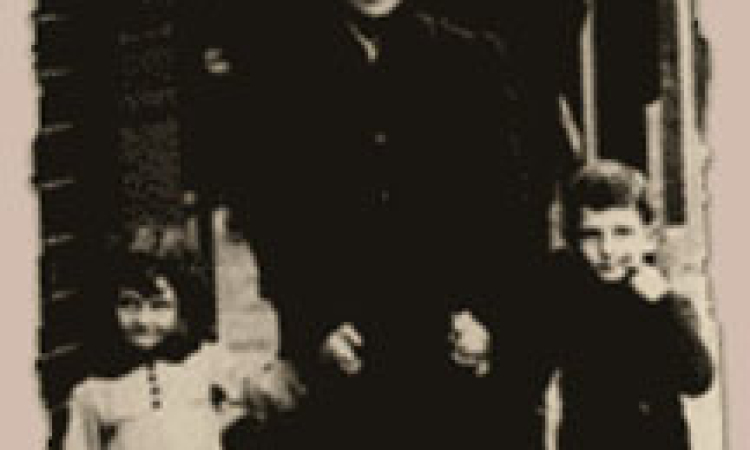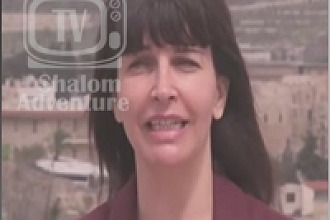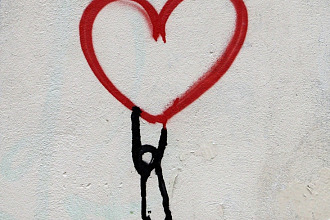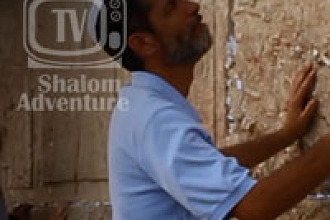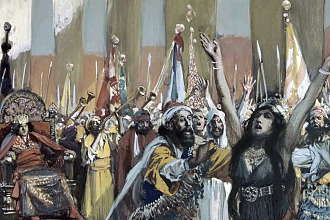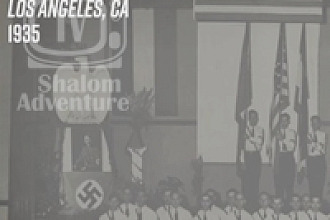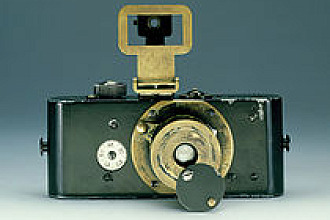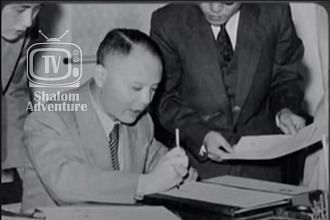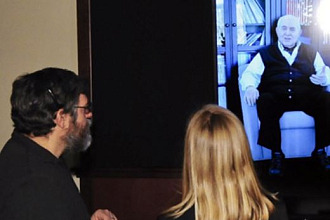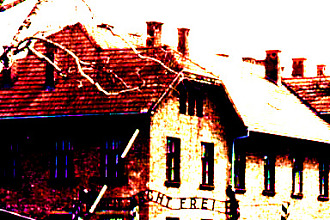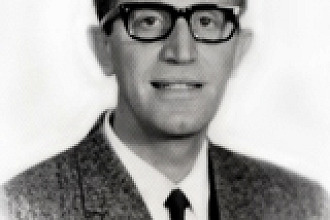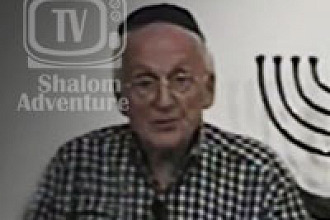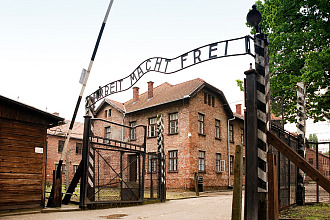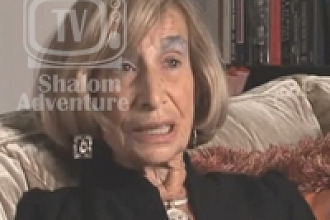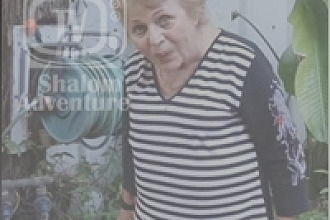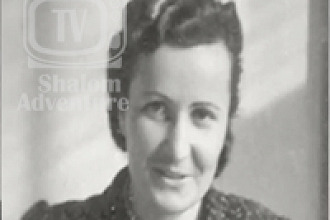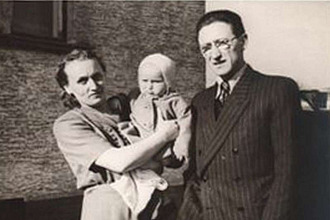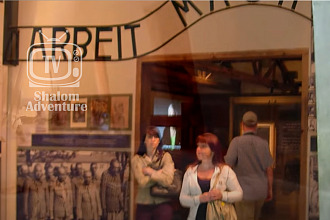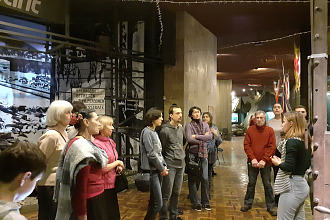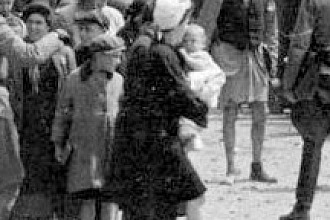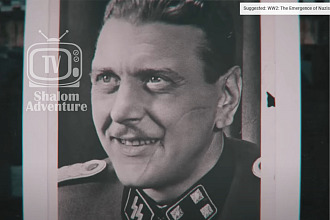I was 4 years old and my brother was 5-1/2 years old when we were first separated from our parents and placed in a Protestant orphanage in Belgium. I was a depressed and confused child, but with the passing of time, I began to believe that all children lived away from their parents.
After several months, the director of the orphanage had reason to suspect that the Germans might discover the few Jewish children hidden there and my brother and I were suddenly returned to our parents. Eager to surprise them, I was happy again.
They were not expecting us when our escort knocked on their door. My parents were certain the Germans had come for them. The terror on my mother's face as she opened the door devastated me. I had expected her to be happy at my homecoming; instead, gloom and despair permeated our home.
The next day, a strange man* came to the house, removed my brother and me, and accompanied us by train to a convent in Bruges. I was sure I had done something terrible. The convent had two separate facilities, one for boys and one for girls. I was immediately separated from my brother. My fifth birthday had just passed and I was now alone in a strange place.
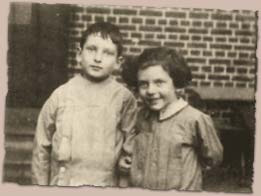 The nuns were strict disciplinarians. But as terrified as I was of the nuns, I was equally afraid of the older children. When unsupervised, some of them would abuse the younger ones. As one of the youngest and smallest, I lived in constant terror. There was no place to hide and I did whatever I could not to bring attention to myself.
The nuns were strict disciplinarians. But as terrified as I was of the nuns, I was equally afraid of the older children. When unsupervised, some of them would abuse the younger ones. As one of the youngest and smallest, I lived in constant terror. There was no place to hide and I did whatever I could not to bring attention to myself.
What little food we had often had worms, and the bread was always rancid and moldy. We lacked clothing, heat and medical attention. I don't remember ever bathing. I never saw a toothbrush, a handkerchief or toilet paper. When I did not see newspaper scraps, I used my clothing. I was awakened at night by lice crawling inside my ear and I had a chronic bloody infection on my scalp.
Even in the freezing winter, we were sent outside. I was swollen and numb from the cold, and my hands, blistered from frostbite, were scarred for years. I knew that I was diseased from filth and neglect, but I thought that this existence was normal.
I hungered to be with my mother and father. I clung to their memory. I desperately yearned for my mother's gentleness. I longed to be noticed, to be touched and caressed. I craved so intensely, I remember my body always aching. Yet I seemed unable to cry and I dared not make noise.
I thought that if I was good, the nuns would tell my parents and they would come for me. I would play by myself, always pretending that I was talking with my mother, always pleading with her to come for me.
I longed to see my brother, believing that he could protect me. He was then 6-1/2 years old. Hoping I might see him, I routinely looked through a keyhole when no one was looking.
When Mother Superior occasionally appeared, I would plead through my eyes for her to notice me, to see my loneliness, my despair. I was a beggar for a look, a touch. From the age of 4, I never saw the world outside, never knew that children live together with their parents, and never knew that they play in the park while their mothers watch over them. Everything had been taken from me. I was to remain only with a distant memory of my parents' faces. I came to feel that I was a nothing in this world, and, at the age of 5, I felt old and worn out.
It would be four years before we were reunited with our parents. Their own ordeal and terror, their grief at the loss of so many cherished family members, their long and mournful separation from us, all had emotionally weakened them.
As I became aware of how broken these two gentle people were, I began to grieve for them. I became overly cautious of my behavior and my main concern was to not cause them any distress.
Ours was a home where memories were not welcome, a home with no past. I was encouraged to believe that I was too young to understand, and that the only thing that mattered was that we were all very lucky to be alive and together again. While I grew up waiting for my parents to ask about that once-orphaned child, I was to remain secretly tormented by my painful memories.
My brother tried to dissociate himself from his past and in so doing, he distanced himself from me. Our common history was never discussed. We were to become a family of strangers.
After having once begged for a touch, I was to spend years hungering for an ear. When I tried to break the silence, I was always quickly reminded how lucky I was, far luckier than most.
When I began to realize that my parents had no awareness of the sorrow I carried, and no desire to know of my hidden past, I came to believe that my feelings had never been important to anyone.
When, through the years, I encountered unexpected kindnesses from strangers, the tears began to flow and I welcomed them. And, today, I can finally say I have found my peace.
* Father Bruno Reynders, a Benedictine monk, who hid close to 400 Jewish children in Christian homes and institutions. He was recognized by Yad Vashem, the IsraelHolocaustMuseum, as a "Righteous Among the Nations."
Originally from here
Posted on Shalom Adventure by: Brenda Miller

